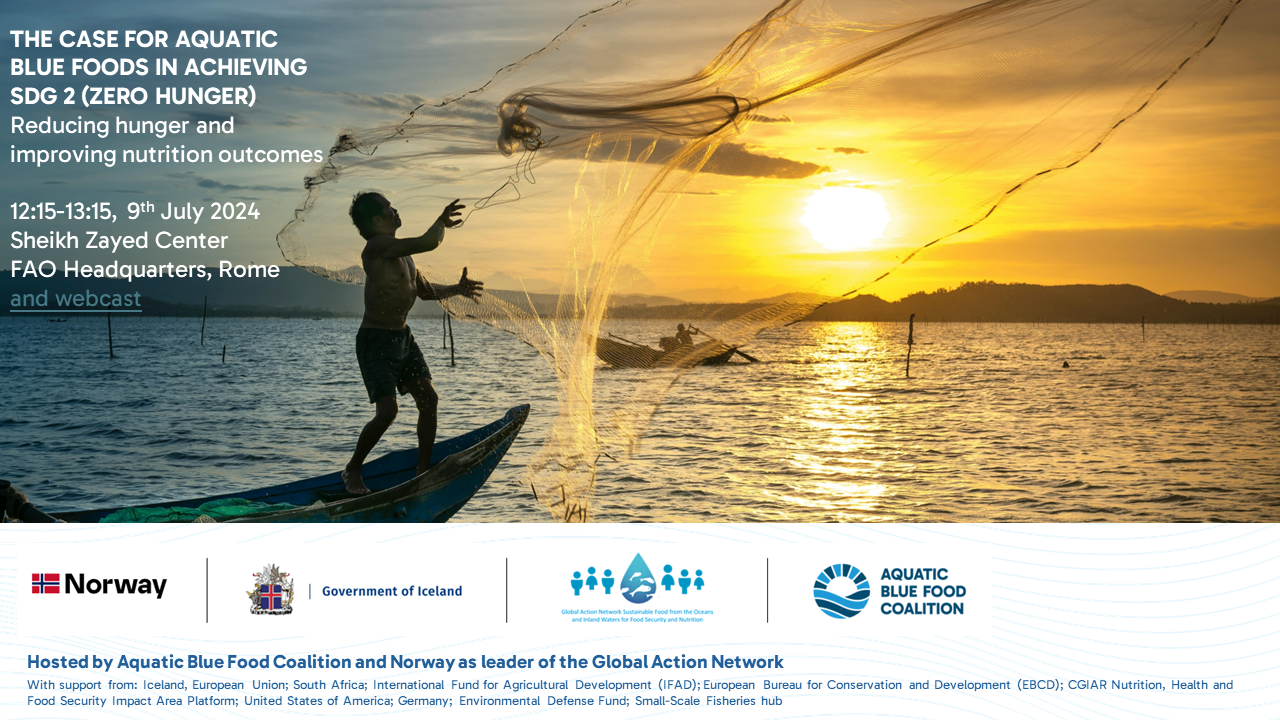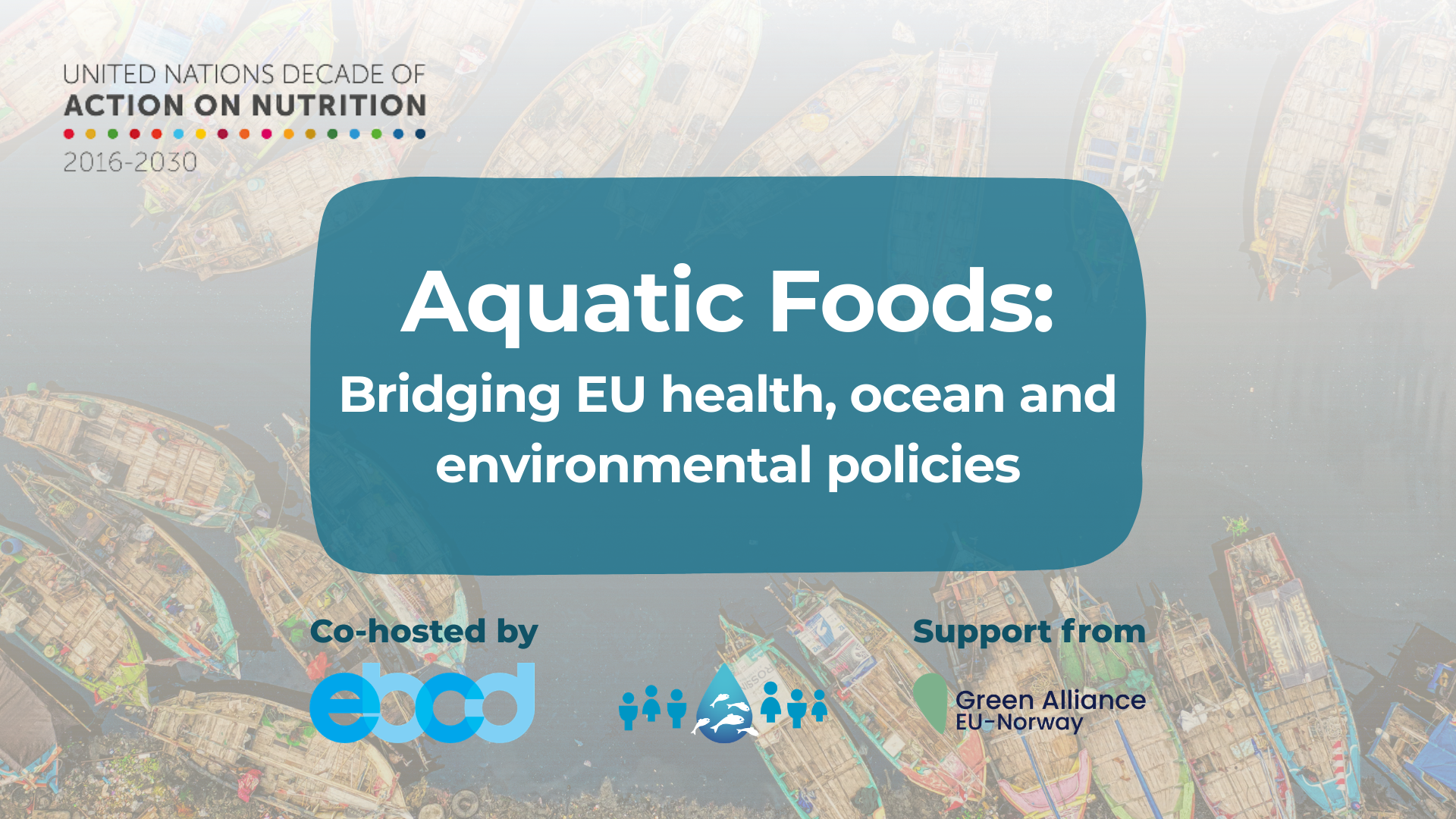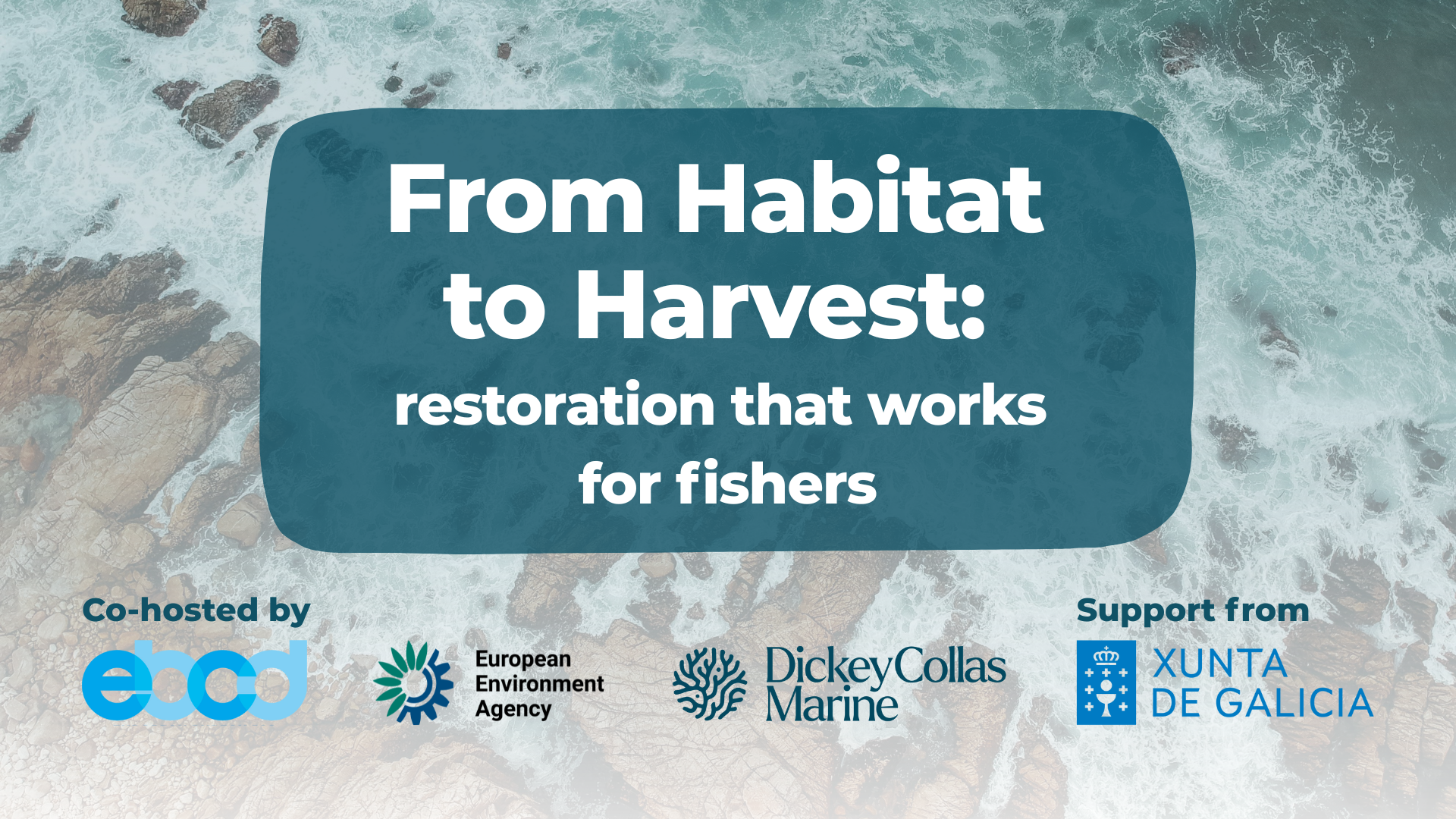As the world faces the triple challenge of meeting food security/nutrition needs, combating climate change, and achieving biodiversity goals, the UN Committee on World Food Security emphasizes the importance of including aquatic foods in food security and nutrition policies, as well as incorporating food security and nutrition considerations into fisheries and aquaculture policies and programs, while also acknowledging the role of small-scale fisheries.
In this context, EBCD co-organized a side-event at COFI36 (FAO Committee on Fisheries) to highlight the importance of knowledge-based actions based on reliable sources regarding the nutritional value of aquatic foods. The event also raised awareness about the importance of sustainable fisheries and aquaculture, particularly among small-scale producers.
National policies frequently overlook the fact that nutrients from aquatic foods can help combat malnutrition and reduce disease risk, and that sustainable fisheries and aquaculture play an important role in providing these nutrients as well as income and livelihoods. Bridging this gap, the event discussed the importance of knowledge in enabling the development of sustainable, resilient, and inclusive food system policies and programs that ensure equitable distribution and increase climate resilience in the sector; an approach will contribute to the development of food systems that promote both human and environmental well-being.
This event was based on initiatives by Norway, as the leader of the Global Action Network, supported by South Africa, Iceland, the European Union, the International Fund for Agricultural Development (IFAD), the CGIAR Nutrition, Health, and Food Security Impact Area Platform, and Iceland, as the leader of the Aquatic Blue Food Coalition, with support from the United States of America, Germany, the Environmental Defence Fund (EDF), and the Small-Scale Fisheries Hub.
More on the event: Agenda – Recoding – Summary report

More on COFI36
Convening in Rome, Italy, from July 8 to 12, and preceded by the second Small Scale Fisheries Summit, the 36th session of COFI (COFI36) reviewed and addressed challenges related to fisheries and aquaculture, including IUU fishing, the impact of climate change on fisheries, and the implications of biodiversity frameworks for fisheries. Decisions and recommendations from COFI Sub-Committees, most notably the recently established Sub-Committee on Fisheries Management, were also discussed at length.
Most importantly, the 2024 State of World Fisheries and Aquaculture (SOFIA) report presented in detail at the meeting, provided a comprehensive overview of all of the above, as well as sector trends and projections. Furthermore, COFI36 showcased how the FAO’s Blue Transformation is promoting sustainable aquaculture, improving fisheries management, and raising standards across value chains. The critical roles that fisheries and aquaculture play in combatting food insecurity and driving sustainable growth were highlighted throughout the session.




